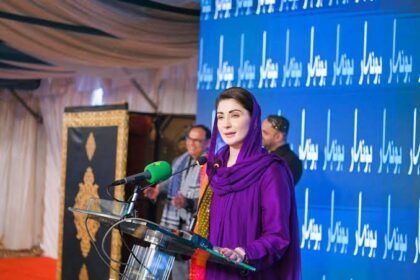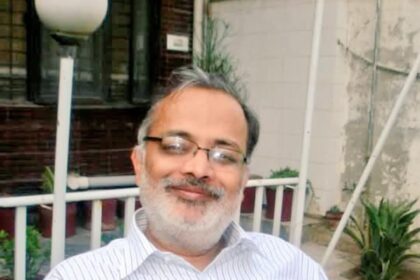The recent unrest happened in Bangladesh this August is reminiscent of similar movements that have marked the history of human civilization. Furthermore, there is every possibility that such turmoil could occur again elsewhere in the world. The eventual crisis is the result of persistent resilience against the state oppression that has been going on for the last 15 years. Ultimately, the resilience by the masses went out of control and it defeated the authoritarian mindset. The incidents of violence happened during weeks’ long protests also highlight fragilities even in a democratic set-up, which can be held hostage by individuals with vested interests. The manipulation of a democratic set-up by an authoritarian leader can trigger widespread anarchy in a state, as witnessed in Bangladesh. There are limits to suppressing civil liberty and curtailing human rights as it cannot go on indefinitely. The perpetual continuation of atrocities by authoritarian regimes invites bigger tragedies and thus fosters historical resilience in the long run. Once perceived as a savior against a military dictator’s oppression, Sheikh Hasina Wajid made history by serving as the prime minister for the longest term. Her 15 year stint came to a dramatic end on August 5, 2024 when protesters turned violent and besieged her official residence in Dhaka. Sheikh Hasina become the prime minister for the first time in 1996 general elections. Her second stint as the prime minister started in 2009 and continued till her escape from the country on August 5, 2024. During her stint as the prime minister, she was accused of cracking down on the opposition, suppressing dissent through the use of force and manipulating general elections, which were mostly boycotted by the opposition. Overall, Sheikh Hasina retained power for fourth straight terms — her fifth overall — in a January general election boycotted by the BNP, which accused her Awami League of trying to legitimise sham elections.
Bangladeshi citizens, especially the youth, had become fed up with the policies of Sheikh Hasina Wajid’s government. An alleged discrimination in the job quota system exacerbated the situation, which provided the masses with a solid basis to launch a protest movement on a large scale. So far, deadly protests and clashes with the security forces have claimed over 300 lives. Though Hasina Wajid’s escape has provided a temporary calm yet normalcy has not been restored completely. In this scenario, the Bangladeshi army chief has acted wisely as the army’s restraint is proving valuable in bringing normalcy to the South Asian state. Like other movements for the restoration of democracy worldwide, there are lessons in the student uprising in Bangladesh. It has become an established fact that no individual can prolong authoritarian rule through the use of force. Unbridled powers by a single person without any accountability often lead to disasters like the one happened in Bangladesh. Democratic principles must be upheld in the larger national interest. Autocratic leaders exploit fragilities in democratic systems. Parliament is turned into a rubber stamp while parliamentary debates become a futile exercise. Dissent is suppressed through crackdowns and opposition is coerced into submission using tactics being used by modern tyrants to prolong their tenure. There should be a limit to an individual’s rule even in a democratic set-up. Reasonably, it should not go beyond two terms. Beyond two terms, a set-up is gets infested with authoritarian malice. The current situation in Bangladesh is also a real eye-opener for rulers in Pakistan. Pakistan has all the ingredients for a similar movement as inflation is becoming unbearable and injustice prevails in almost all sectors. Protest movements are already active in different parts of the country. A sit-in is going on in Islamabad while Balochistan is almost shut due to a protest movement while a crackdown has not been stopped on the PTI workers and leaders. A small incident can trigger a larger protest movement. Those in power in Pakistan need to be conscious and give respect to democracy and people’s rights.
Another sorry aspect of the unrest is the use of proxies. Major powers habitually get involved in the national politics of smaller states, which leads to problems. It is alleged that India was patronizing the Hasina Wajid’s government using it as a proxy against rivals. The protection of one state’s interests through the use of proxies has never yielded desired results. It has rather led to bigger disasters. Another key lesson is that the restoration of democracy is not an easy task. It requires a nurturing environment and protection against tyrants. The masses can stop oppression only through their united struggle. Those, who continue to suffer in silence and never complain or stand up against injustice, never taste true democracy. Achieving democracy and its protection is a daunting challenge. Only the united struggle at the local level can bring historical revolutions. The citizens of Bangladesh have proved the world that they cannot allow injustice to prevail in their society. They have sacrificed their lives for this noble cause. However, the united struggle should not go in vain and the protest movement should not end up in chaos. They should rather work for a better democratic system while following the true democratic principles and rule of law. Their motive and principles should be clear. They should lay such an example that could be emulated by other democratic forces. After the ouster of Sheikh Hasina Wajid, Bangladesh is entering a new era. A new awakening is taking roots with students as its torchbearers. This social movement should not be hijacked by people with vested interests. The masses of Bangladesh have to play a more important role now. They have to protect their rights and all focus on the creation of a better system while incorporating true principles of democracy.






